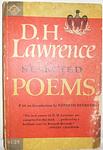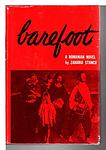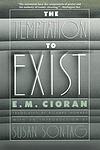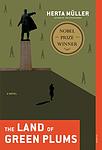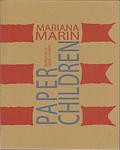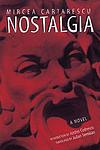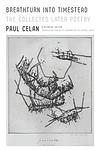The Greatest "Romania" Books of All Time
Click to learn how this list is calculated.
This list represents a comprehensive and trusted collection of the greatest books. Developed through a specialized algorithm, it brings together 284 'best of' book lists to form a definitive guide to the world's most acclaimed books. For those interested in how these books are chosen, additional details can be found on the rankings page.
Genres
Countries
Date Range
Reading Statistics
Click the button below to see how many of these books you've read!
Download
If you're interested in downloading this list as a CSV file for use in a spreadsheet application, you can easily do so by clicking the button below. Please note that to ensure a manageable file size and faster download, the CSV will include details for only the first 500 books.
Download-
1. Poems by Paul Celan
This book is a collection of deeply moving and thought-provoking poems that delve into themes of love, loss, history, identity, and the human condition. The poems are marked by their haunting imagery, complex symbolism, and profound exploration of the Holocaust and its aftermath. The author's unique style and powerful language make this collection a compelling read, offering readers a glimpse into the emotional depth and intellectual complexity of his experiences and reflections.
-
2. Danube by Claudio Magris
This literary work is a rich tapestry that combines travelogue, history, and cultural analysis, following the journey of the river Danube from its sources in the heart of Europe to its delta at the Black Sea. As the narrative meanders through various countries, it delves into the complex history and diversity of the regions along the riverbanks, reflecting on the interplay of different cultures, languages, and peoples. The book is a contemplative exploration of the European spirit, examining the river as both a physical and metaphorical conduit through which ideas and influences have flowed, shaping the continent's past and present.
-
3. On the Heights of Despair by Emil Cioran
"On the Heights of Despair" is a philosophical exploration of the human condition, particularly focusing on themes such as existentialism, despair, and nihilism. The author delves into the idea of life as suffering and the inevitability of death, offering a bleak yet thought-provoking perspective on existence. The work is a profound contemplation of life's absurdity, loneliness, and the struggle to find meaning, presenting an introspective journey into the depths of despair and the heights of existential thought.
-
4. Barefoot by Zaharia Stancu
"Barefoot" is a powerful novel set in Romania during World War II, depicting the hardships of a young shepherd named Darie who is forced into labor by the Soviet regime. The narrative follows his struggles, survival, and his journey through war-torn Eastern Europe. The protagonist's experiences are a metaphor for the suffering and resilience of the Romanian people during this tumultuous period in history.
-
5. The Balkan Trilogy by Olivia Manning
The narrative follows a young British couple, Harriet and Guy Pringle, as they navigate the tumultuous landscape of Eastern Europe during the early years of World War II. Set against the backdrop of the Balkans, the trilogy paints a vivid picture of the couple's experiences in Romania and Greece, where they encounter a diverse cast of characters, from diplomats and soldiers to refugees and spies. As the war encroaches on their lives, their marriage is tested by the strains of displacement, political uncertainty, and personal betrayal, offering a poignant exploration of love, loyalty, and the human spirit amidst the chaos of conflict.
-
6. The Temptation To Exist by Emil Cioran
"The Temptation to Exist" is a philosophical work that explores the human condition and the inherent struggles of existence. The author delves into themes of nihilism, despair, and the search for meaning in a world filled with suffering. Through a series of thought-provoking essays, Cioran challenges traditional beliefs, questions the nature of reality, and reflects on the complexities of human existence, ultimately offering a bleak yet profound perspective on the human experience.
-
7. The Land Of Green Plums by Herta Müller
The novel is a poignant exploration of life under a repressive regime, following a group of young friends in Romania during the totalitarian rule of Nicolae Ceaușescu. Through the eyes of the narrator, a young woman with aspirations of freedom and self-expression, the story delves into the oppressive atmosphere of surveillance, fear, and betrayal that permeates their existence. As they struggle to maintain their integrity and hope amidst the dehumanizing forces of the state, the friends are inexorably drawn towards tragic outcomes, illustrating the devastating impact of living under constant oppression and the indomitable spirit that resists it.
-
8. Abel Alone by Áron Tamási
"Abel Alone" is a poignant narrative that follows the life of a young shepherd named Abel, who lives in the isolated, pastoral landscapes of Transylvania. The story delves into Abel's solitary existence, his deep connection with nature, and his struggles with the complexities of human relationships and societal expectations. As he grapples with personal growth and the challenges of adulthood, Abel's journey is a testament to the resilience of the human spirit and the search for identity and belonging in a world that often feels vast and indifferent.
-
9. A Funtineli Boszorkány by Albert Wass
The novel is a sweeping historical saga set in Transylvania, focusing on the life of a young peasant girl who, despite her humble origins and the tumultuous times, rises to become a powerful figure in her community. Possessing an indomitable spirit and a mysterious gift that some consider witchcraft, she navigates the complex social hierarchies and political upheavals of her era, becoming both revered and feared. Her journey is marked by love, loss, and the relentless pursuit of her destiny, as she becomes entwined with the fates of the villagers and the land itself, reflecting the broader struggles and resilience of the human spirit.
-
10. They Were Counted by Miklos Banffy
This novel, set in the twilight years of the Austro-Hungarian Empire, weaves a tale of aristocratic decadence, political intrigue, and personal downfall. It follows two cousins, navigating the treacherous waters of high society, politics, and love in Transylvania and Budapest. Through their eyes, the reader experiences the lavish balls, the rural estates, and the corridors of power, all set against the backdrop of an empire on the brink of collapse. The story masterfully portrays the complex interplay between personal ambitions, romantic entanglements, and the shifting sands of political alliances, capturing the essence of a bygone era with vivid detail and emotional depth.
-
11. Fortunes Of War by Olivia Manning
This novel is a gripping narrative set against the backdrop of World War II, focusing on the lives of a young British couple, Harriet and Guy Pringle, as they navigate the challenges and upheavals brought on by the conflict. Living in Eastern Europe, they find themselves caught in the tides of war, with Guy's position as an English teacher becoming increasingly precarious. The story explores themes of love, loyalty, and the struggle for survival in a foreign land amidst the chaos of war, offering a poignant look at the personal impacts of global conflict. Through their journey, the couple encounters a diverse cast of characters, each coping with the war in their own way, providing a rich tapestry of human experience during a time of widespread uncertainty.
-
12. Give Me Back My Mountains by Albert Wass
"Give Me Back My Mountains" is a poignant historical novel that delves into the struggles and resilience of a Transylvanian noble family during the tumultuous period of World War II and the subsequent communist takeover. The narrative explores themes of loss, identity, and the unyielding human spirit, as the family confronts the confiscation of their ancestral lands and the erosion of their cultural heritage. Through vivid characters and rich descriptions, the book paints a picture of a bygone era, highlighting the personal and collective challenges faced by those who lived through the seismic political shifts of the 20th century in Eastern Europe.
-
13. Kard és Kasza by Albert Wass
"Kard és Kasza" is a historical novel set in the tumultuous period of 16th-century Hungary, a time when the country is caught in the crossfire of the Ottoman Empire's expansion and the Habsburg's imperial ambitions. The narrative follows the life of a noble Hungarian family, focusing on their struggles, loyalty, and the defense of their homeland against the backdrop of war and political upheaval. The story delves into themes of honor, betrayal, and the complexities of feudal allegiances, painting a vivid picture of the era's social and military fabric through the lens of personal and nationalistic endeavors.
-
14. The Keep by F. Paul Wilson
"The Keep" is a gripping supernatural thriller that follows the story of a Nazi commander who takes control of an ancient castle in Romania during World War II. As the commander and his soldiers begin to experience strange and terrifying occurrences, they soon realize that they are not alone in the castle. With the help of a mysterious prisoner, they must confront a malevolent force that has been awakened, threatening their lives and sanity. This dark and suspenseful tale explores themes of good versus evil, redemption, and the power of ancient forces.
-
15. Paper Children by Mariana Marin
"Paper Children" is a heart-wrenching tale that follows the lives of three orphaned siblings as they navigate the harsh realities of living on the streets of a war-torn city. With their parents gone and no one to rely on, the children resort to selling handmade paper dolls to survive. As they face hunger, violence, and loss, their unbreakable bond and resilience become their only source of hope in a world that seems determined to break them. This poignant story explores themes of family, survival, and the indomitable spirit of children in the face of adversity.
-
16. Domnisoara Christina. Sarpele by Mircea Eliade
The book is a haunting exploration of the supernatural, delving into the eerie and the uncanny through the story of a mysterious woman who haunts a Romanian family. With a narrative that weaves between the boundaries of the living and the dead, the book examines themes of love, obsession, and the cultural folklore of vampirism. The protagonist's encounter with the enigmatic Christina and the subsequent unraveling of reality challenge the reader to confront the power of ancient myths and the darkness that lies within the human psyche.
-
17. Dulce Ca Mierea E Glonțul Patriei by Petru Popescu
The book is a poignant exploration of life under a totalitarian regime, as experienced by a young boy growing up in post-World War II Romania. Through the protagonist's eyes, readers witness the oppressive atmosphere of a society where fear, indoctrination, and the omnipresence of the state disrupt the innocence of childhood. The narrative delves into themes of family, loyalty, and the struggle for personal identity against the backdrop of political propaganda and the harsh realities of a communist state. The title, which translates to "The Bullet of the Fatherland is Sweet as Honey," reflects the bitter irony of patriotic slogans clashing with the grim truths of the characters' lives.
-
18. Nostalgia by Mircea Cărtărescu
"Nostalgia" is a collection of interconnected stories that explore themes of memory, desire, and the blurred boundaries between reality and imagination. Set in a surreal version of Bucharest, the book delves into the lives of various characters, including a young boy fascinated by his eccentric aunt, a man haunted by dreams of his childhood, and a woman searching for her lost lover. Through vivid and poetic prose, the author weaves together these narratives, creating a mesmerizing exploration of the human experience and the power of nostalgia.
-
19. Journal, 1935 44 by Mihail Sebastian
"Journal, 1935-44" is a captivating collection of diary entries written by an insightful and introspective individual named Mihail Sebastian. Spanning almost a decade, the journal provides a unique glimpse into the author's personal thoughts, experiences, and observations during a tumultuous period in history. Through his poignant reflections, Sebastian explores themes of identity, love, politics, and the human condition, offering readers a profound and thought-provoking journey through his inner world.
-
20. Life Begins On Friday by Ioana Pârvulescu
"Life Begins On Friday" is a captivating novel set in 1897 Bucharest, Romania, where a crime takes place that remains unsolved for over a century. The story follows a journalist who becomes obsessed with unraveling the mystery, as he delves into the lives of the city's inhabitants and uncovers secrets and hidden connections. Through vivid descriptions and a rich historical backdrop, the novel explores themes of love, fate, and the complexities of human nature, ultimately offering a poignant reflection on the passage of time and the enduring power of storytelling.
-
21. All Rivers Run To The Sea by Elie Wiesel
"All Rivers Run to the Sea" is a poignant memoir that recounts the harrowing experiences and profound reflections of a Holocaust survivor from his childhood in Sighet, Transylvania, through the horrors of Auschwitz and Buchenwald, where he lost much of his family. The narrative then follows his post-war life as a journalist in Paris, his efforts to memorialize the Holocaust, and his eventual role as a prominent author and Nobel laureate. The memoir is a deeply personal and moving account, exploring themes of memory, faith, and the enduring impact of trauma on an individual's identity and worldview.
-
22. Memory Rose Into Threshold Speech: The Collected Earlier Poetry by Paul Celan
"Memory Rose Into Threshold Speech: The Collected Earlier Poetry" is a compilation of the early poetry works of Paul Celan. The book delves into themes of memory, language, and the human experience, showcasing Celan's unique style and exploration of complex emotions. Through his powerful and evocative language, Celan invites readers to reflect on the profound impact of memory and the transformative power of words.
-
23. The Fox Was Ever The Hunter by Herta Müller
This novel transports readers to the waning days of communist Romania, weaving a tense narrative of life under a repressive regime. Through the eyes of a young schoolteacher and her circle of friends, the story reveals a world where trust is eroded by surveillance and betrayal, and daily existence is suffused with fear and suspicion. The narrative is rich with poetic imagery and symbolism, capturing the oppressive atmosphere of the time. As the characters navigate their lives, their stories become a powerful testament to the human spirit's resilience against the backdrop of political tyranny.
Reading Statistics
Click the button below to see how many of these books you've read!
Download
If you're interested in downloading this list as a CSV file for use in a spreadsheet application, you can easily do so by clicking the button below. Please note that to ensure a manageable file size and faster download, the CSV will include details for only the first 500 books.
Download